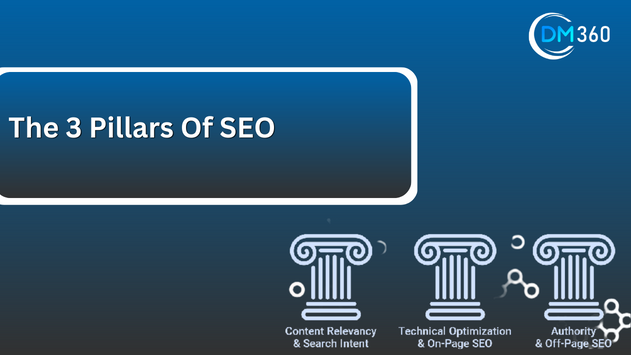The 3 Pillars Of SEO – SEO seeks to improve a website’s ranking in the natural search engine results page (SERP). It includes a range of processes and tactics that enhance the site’s ranking, credibility, and usability to increase traffic.
Table of Contents
ToggleIt also includes keyword optimization, content optimization, technical optimizations, and other off-page factors such as link popularity and social bookmarks. Algorithms used in SEO and the intent of users determine the ranking of a website and, therefore, give it better opportunities to attract relevant traffic for its online goals through higher ranking.
The 3 Pillars Of SEO
Each pillar and how they work together to optimize a website will be discussed.
Technical Features
Technical aspects of a site concern its layout, back end, and functionality. These elements are used by search engines to crawl and index a site, thus influencing the site’s ranking in search engine results.
Website Speed and Performance
The speed and the performance of a website are essential elements of usability and accessibility as well as the efficacy of SEO. It is widely known that users are more likely to be satisfied if the website loads quickly. Web page loading time, image size, size of server response for a given page, and browser caching are some basic techniques to make the website faster. A fast loading times are good for user experience and search engine rankings.
Mobile Responsiveness
Currently, search engines have advanced the ranking status of websites compatible with mobile devices as more people use mobile devices. Mobile responsiveness refers to a website’s ability to adapt to different screen sizes; here are some ways to ensure your website is mobile responsive. For a website to rank well in mobile search or to attract larger audiences, the website must be optimized for mobile devices.
Site Architecture and Navigation
Search engines and crawlers should also be able to read all the content on your website. Site indexing is important because it allows search engines to identify the order and importance of different web pages easily.
URL Structure and Redirects
This means that the URLs used should favor users and search engine algorithms. This makes it easier to identify what your page is about simply by looking at the URL and finding the relevant keywords. Further, permanent redirection of old or shifted content, including 301 redirects, contributes to proper page indexing by search engines as well as retention of their SEO services Chicago significance.
XML Sitemap and Robots.txt
XML Sitemaps are tools that help Us tell search engines about how your site’s URLs are organized and arranged. You can help search engines find and crawl your pages faster by incorporating an XML sitemap. Robots.txt also forms the basis of search engine crawlers to decide which pages need to be crawled and indexed. Robots.txt is useful in allowing search engines to control which portions of your website are readable.
SSL Certificate and HTTPS
Every website owner should know about the HTTPS protocol and SSL certificate, as these are very important for the website’s and its users’ security. This form of encryption provides secure data transmitted from the user’s browser to the website. Incorporating an HTTPS connection to your websites is beneficial in improving your search rankings.
Content Strategy
At its basic level, SEO is all about content. With good content marketing strategies, traffic can be generated, users are engaged, and websites can be optimized for search engines:
Keyword Research and Optimization
Through research, you can come up with key terms and phrases that people use while searching for content related to your business. Including these keywords appropriately in the content also enhances the possibility of you ranking high on the search engines.
High-Quality and Unique Content
When using search engines, the ultimate goal is to select relevant and easily navigable content. Generates more qualified traffic to your website; increases the amount of time individuals spend on your site; and increases your conversion rates.
Content Relevance and User Intent
To be more precise, creating content, one should define what user’s intent is. By correctly linking content to user intent, and offering value and relevance, your site can rank higher in the search engine results.
Regular Content Updates
Updating a website’s content is beneficial to its ranking as it informs the search engines that the site is alive. Thus, the crawl frequency can grow, and the probability of ranking higher in the search outcomes can also grow.
Off-Page Elements
Factors that are off your website and the overall and nearby surroundings still influence your website’s SEO. Most of these elements are focused on link-building and online reputation management:
- Link Building
The impact of high-quality and relevant backlinks from other professional and reputable websites should also not be underestimated. A backlink tells search engines that your content is worthy of sharing by passing a message from other sites to your site. The right link-building approaches, including guest blogging, influencer outreach, and content promotion, can help your business increase website authority and ranking.
- Social Signals
It is necessary to point out that activities such as sharing, liking, and commenting on social media outlets can impact your website’s search engine results. If users actually interact with your content on social networks, there may be an improvement in organic traffic.
- Online Reputation and Brand Mentions
Brand awareness and good reputation of your business in your industry will also help you indirectly in ranking higher on the search engines. Endorsements comprise positive comments, recommendations, and recommendations from other friendly sources can boost the brand popularity and enhance search results.
Summing Up
Technical Features as well as Content Strategy and Off-Page items are all aspects that go hand in hand to perfect a website for searches. It is thus seen that adhering to the technical aspects of their website, developing a smart content strategy, and using powerful off page optimization weapons, business people can arrive at better organic visibility and superior, results oriented SEO services in Chicago success. It is thus important to understand which of these factors and to what extent should be given priority when organizations seek to improve on their standings in the web environment.
FAQs
What are the three pillars of SEO?
Technical Features, Content Strategy, and Off-Page Elements collectively form the basis of SEO development. All these, in conjunction, ensure the website is well indexed for search engines, and its visibility and ranking are enhanced.
Why are website speed and performance important for SEO?
How fast a website loads and performs is important as it indicates user experience and search engine positioning. A fast-loading website is one that loads swiftly and is preferred by users due to the quality experience they are likely to offer compared to slow-to-load sites. Moreover, site loading efficiency is also important for search engines, and again, it is for users’ convenience.
How does mobile responsiveness affect SEO?
Mobile responsiveness is essential in web design because it can impact search engine results ranking. People also use their mobile gadgets more frequently, so websites’ responsiveness and ability to transform to screens of various sizes should also be considered if one wants to get high rankings on search engines and attract more clients.
What is the role of site architecture and navigation in SEO?
Site architecture and navigation assist search engines in crawling and indexing your site content Appropriately. Having good site maps, breadcrumbs, and internal links works to the advantage of the search engines as it is easy for them to determine the relevancy and the level of a particular page, which enhances the possibility of its ranking.







